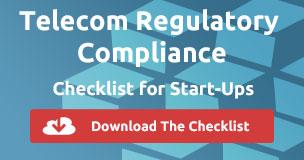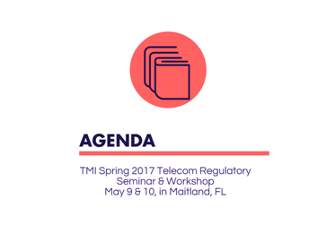 Today: US Senate Congressional Resolution To Overturn FCC Privacy Rules, FCC Robocall Notice of Proposed Rulemaking, FCC Elimination of International Reporting Requirements, Oregon Lifeline Rules
Today: US Senate Congressional Resolution To Overturn FCC Privacy Rules, FCC Robocall Notice of Proposed Rulemaking, FCC Elimination of International Reporting Requirements, Oregon Lifeline Rules
US Senate Congressional Resolution To Overturn FCC Privacy Rules
The US Senate passed a resolution under the Congressional Review Act (CRA) to nullify the FCC’s Broadband Privacy rules. See the Regulatory Mix dated 3/10/17. In a Joint Statement FTC Commissioner Terrell McSweeny and FCC Commissioner Mignon Clyburn said, in part: “If signed by the President, this law would repeal the FCC’s widely-supported broadband privacy framework and eliminate the requirement that cable and broadband providers offer customers a choice before selling their sensitive, personal information… This legislation will frustrate the FCC’s future efforts to protect the privacy of voice and broadband customers. It also creates a massive gap in consumer protection law as broadband and cable companies now have no discernible privacy requirements. This is the antithesis of putting #ConsumersFirst. The House must still consider this legislation. We hope they recognize the importance of consumer privacy and not undermine the ability of Americans to exercise control over their sensitive data.“
In contrast, House Communications and Technology Subcommittee Chairman Marsha Blackburn (R-TN) praised the passage of the broadband privacy CRA, saying “I applaud the Senate’s vote today to roll back the FCC’s overreach. When the FCC adopted unnecessary and discriminatory rules for ISPs it didn’t improve Americans online privacy; it harmed it by taking the FTC off the job. Today’s action takes us one step closer to restoring the FTC’s role as America’s expert agency on privacy.”
FCC Robocall Notice of Proposed Rulemaking
At its March 23, 2017, Open Meeting the FCC adopted a Notice of Proposed Rulemaking seeking comment on rules that would codify the “Do-Not-Originate” initiative proposed by the FCC and launched by the industry strike force. The proposed rules would allow providers to: (1) block spoofed caller ID numbers associated with phone lines that do not actually dial out, without running afoul of FCC rules requiring carriers to complete all calls;(2) block calls upon the request of the subscriber to an originating number, like IRS lines not used for outbound calls; and (3) block spoofed robocalls when the spoofed caller ID cannot possibly be valid, including numbers that have not been assigned to anyone yet or purport to be from an area code that does not exist. The FCC is also seeking public input on how to address spoofed calls from international locations, where scammers often hide to avoid U.S. legal processes. The FCC also adopted a Notice of Inquiry which seeks public comment on how to further enable carriers to block illegal robocalls before they can reach consumers, including whether it should create a safe harbor for providers from FCC call completion rules when they rely on objective criteria to identify and block calls that are highly likely to be fraudulent, illegal, or spoofed robocalls.
FCC Elimination Of International Reporting Requirements
At its March 23, 2017, Open Meeting the FCC adopted a Notice of Proposed Rulemaking that would streamline and eliminate certain international reporting requirements. The proposal would eliminate the annual Traffic and Revenue Reports. The FCC suggests the costs of this data collection exceed the benefits of the information. The FCC will also seek comment on streamlining and improving the reporting requirements for the Circuit Capacity Reports. The proposal asks whether alternatives or substitutes for the FCC’s data are available, whether there are ways to reduce reporting burdens, and seeks comment on resolving discrepancies between capacity reported by cable operators and capacity reported by cable capacity holders.
Oregon Lifeline Rules
The Oregon Public Utility Commission has proposed revisions to its Lifeline rules to conform them to the changes at the federal level. This includes changes to the eligibility requirements, benefit port freezes, and usage requirements for no-charge wireless Lifeline services. Comments may be filed until April 24, 2017; a hearing will be held April 17, 2017.
_____________________________________________________
The Regulatory Mix, TMI’s daily blog of telecom related regulatory activities, is a snapshot of PUC, FCC, legislative, and occasionally court issues that our regulatory monitoring team uncovers each day. Depending on their significance, some items may be the subject of a TMI Briefing.
TMI's Telecom Regulatory Seminar & Workshop - May 9 & 19, 2017 in Maitland, FL!
TMI Regulatory Training | Technologies Management Inc. GET REGISTRATION FORM HERE





